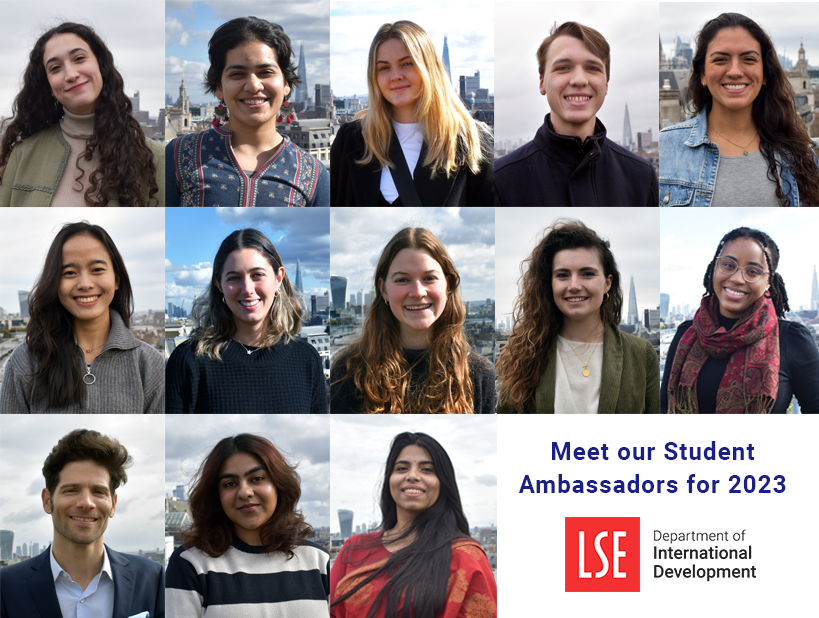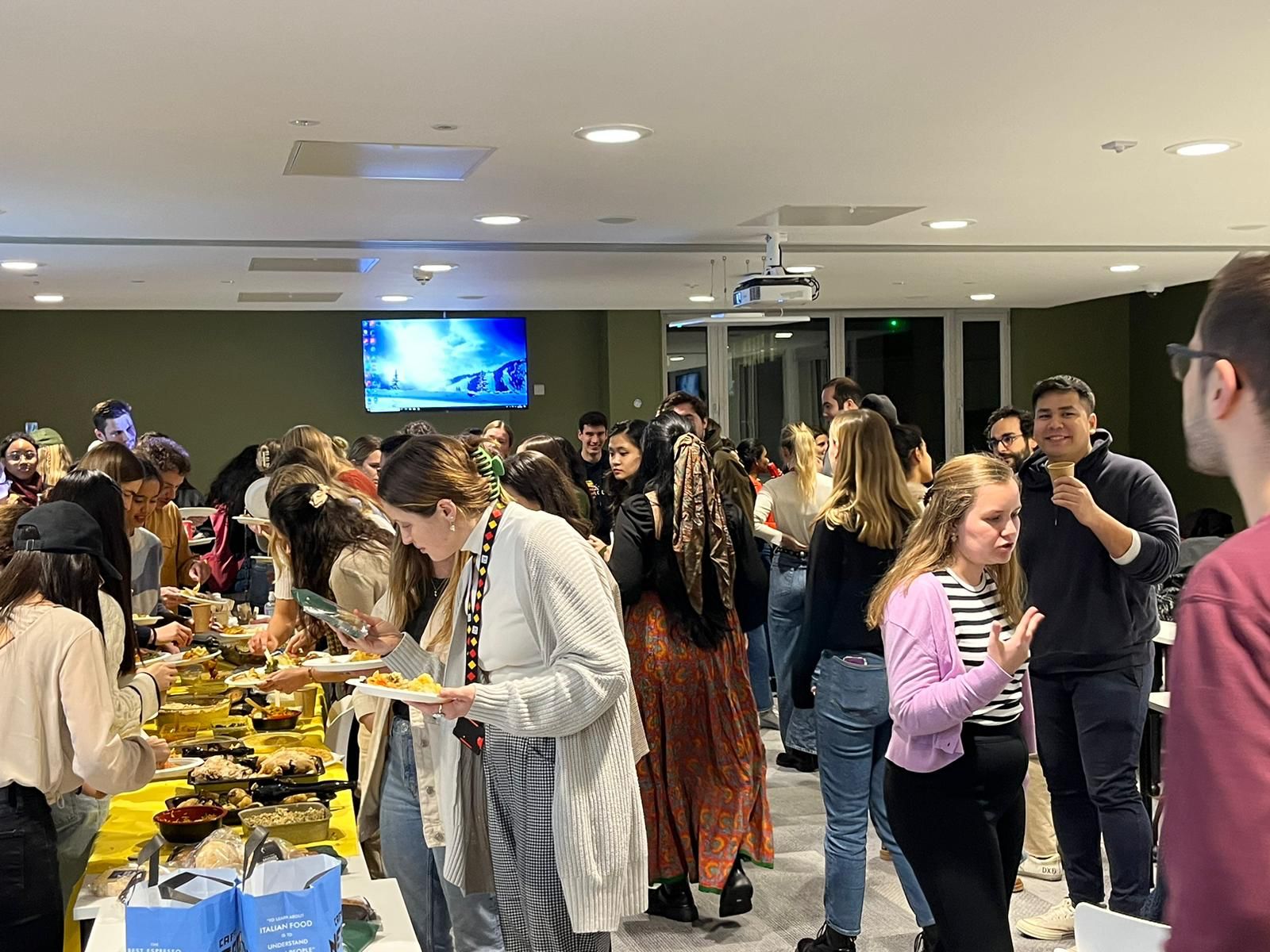Student Media Ambassador Salena Wang talked to MSc Anthropology and Development student John Paulraj. Read about their chat here.

Having been attending the same DV400 seminar with John for two terms, I am impressed by his academic enthusiasm and the ability to support unique development arguments with concrete empirical evidence at ease. After the most inspiring talk I had with John, I was touched by his frankness and the amount of inspiring grassroots experiences and experiential learning he has done over the last ten years. The blog post below hardly begins to describe the development journey he has taken; nevertheless it provides a unique insight.
“I come from Nagaland, one of the eight north-eastern states of India. The rich cultural diversity has influenced my outlook and perception of the world. I did my undergraduate degree at St Joseph’s College, Bangalore, where I studied BSc in Chemistry, Botany and Environmental Sciences. At the time, I was interested in the application of science in society, and also the interaction of humans with their immediate environment; an outlook shaped by tribal philosophy which considers man as part of more substantial nature.
During my undergraduate studies, I got opportunities to volunteer with different organisations, which allowed me to involve myself in interesting projects. Like, one where I studied the impact of noise on the population of birds in Bangalore. The project was undertaken by an organisation called ATREE to examine the effect of urbanisation and noise pollution on urban fauna. Later on, in my second year, I volunteered at a grassroots organisation, The Forest Way, and was involved in their afforestation programme in Thiruvanamallai district of Tamil Nadu. I remember carrying bags of saplings up to the rock-strewn hills of Arunachala and would plant them with the hope of seeing a densely covered forest in the future. It was there that I was formally introduced to the idea of rural women self-help groups (SHGs), and their role in preserving and conserving biodiversity. I also got to learn concepts of “sacred forest” and its importance in preserving the genetic pool of local, indigenous flora and fauna. I witnessed the creation of a cycle altogether just by planting, and I was encouraged to see how society and environment could interact towards a very positive direction.
After my BSc, I took a year off from studies and volunteered in a grassroots organisation called Avani in the Himalayan State of Uttarakhand for over three months. I was involved in a number of activities that included agriculture, natural dyeing and handicraft, and renewable energy. One of the most interesting works I remember doing there was mobilising the support of rural communities for a project that looked at producing electricity from pine needles using the Pine Needle Gasifier technology. Along with other interns/volunteers, we helped the organisation win a national competition called ‘Mahindra Spark the Rise Challenge’ which provided seed funding to initiate a pilot in one of the villages.
I was always interested in how communities adapt to uncertainties and environmental changes; this source of curiosity pushed me to pursue a degree in social sciences. I was then enrolled in one of the good Indian universities, the Tata Institute of Social Sciences, Mumbai for an MSc in Disaster Management, where I learned how disasters triggered and shaped changes in societies. The master’s programme provided me with a theoretical approach to look at disasters from social justice, cultural, political and economic perspectives.
During my studies, I got the opportunity to work in three different types of disasters that happened in India. I did my fieldwork to understand the political economy of droughts and people’s vulnerability in Marathwada, one of India’s worst drought-hit areas. On another occasion, my class was sent as part of the team to do a preliminary damage assessment in the aftermath of the 2013 Uttarakhand flash floods. I remember there were no roads and we trekked for 2 days to the covered ten villages in the mountains which were cut off from the main towns. We were among the first group of people to get in touch with the people after the disasters. Our goal was mainly to try and understand what they needed and how they wanted their rehabilitation and reconstruction to take place. A few experiences still remain vivid in my mind – when entering a village, the silence, followed by cries of women who had lost their husband and children, grandfathers having to take up the responsibility of taking care of their daughters-in-law and grandchildren, villagers gathered in front of the local shrine, shocked, waiting for their deity to give them a sign to leave the village despite the state telling them to leave, and so on. It was then I realised how religious beliefs motivate people to prioritise risks.
For the survivors of the disasters, cremation is an important part of bringing closure to their trauma. What happened in the aftermath of the disaster was that there were no dry woods to burn the dead bodies. Families reported seeing their loved ones eaten by feral dogs. There is so much trauma involved and, in that trauma, if you are not sensitive about how people deal with it, it creates a lot of tensions. However, in the midst of all of these challenges, we also found happiness in small things during our trek to different villages – despite being on their reserves, the villagers would invite us for a cup of tea and conversations. It enabled us, as students thinking of our future in this discipline, to understand the trauma and sentiments of people affected by disasters. Such experiences can be traumatising even to professionals who work in the field on a daily basis. I remember at the end of the project, our professor called us for a session to assess if we had any post-traumatic experience. Taking my learnings from this fieldwork, I did my research in Mon, one of the most remote districts of Nagaland, to explore how components of resilience are embedded in the cultural and traditional practices of the Konyaks. These experiences all shaped the way I think.
After my master’s degree, I worked as a Project Coordinator at the Tata Chemicals Society for Rural Development, Gujarat. I critically looked at how industries can contribute to the adaptation of climate change and biodiversity conservation through cooperate social responsibility. It was there that I started exploring how theories combined with research and groundwork practice could be translated into policymaking. We studied what would change in climate mean for villagers whose priority was agriculture and water security, and not climate change. I remember one fun project at our project site, where we managed to convert a sand dune located next to the seashore into a fully-functioning ecosystem within six months. It was unbelievable. I would never have expected it when we initially thought of experimenting it. Before joining LSE, I worked as a Programme Coordinator at the Integrated Mountain Initiative, a mountain policy and advocacy organisation, where part of my responsibility was to organise multi-stakeholder dialogues to discuss issues pertaining to the Himalayan regions. For example, in Ladakh, Jammu & Kashmir, a summit was organised around water security and skills for development in the region. The role also allowed me to work closely on projects with the UN-FAO, UNDP, the Swiss Agency for Development Cooperation, WWF-India and different central and state government ministries in India, thereby allowing me to understand how policies are drafted, negotiated, and implemented with different actors of development in the mountain states.
As a Commonwealth Scholarship holder, I now have the opportunity to study MSc Anthropology and Development at the LSE. The courses offered here perfectly suit my interests. The disciplinary training provides me with the anthropologist perspective looking at development (instead of from a development professional perspective studying anthropology). The discipline of anthropology allows me to think critically and outside the box and the development part of the course relates to my personal working experience. I hope to use my learnings from anthropology and development to further the understanding of societies and disasters in the future.”
The views expressed in this post are those of the author and in no way reflect those of the International Development LSE blog or the London School of Economics and Political Science.





